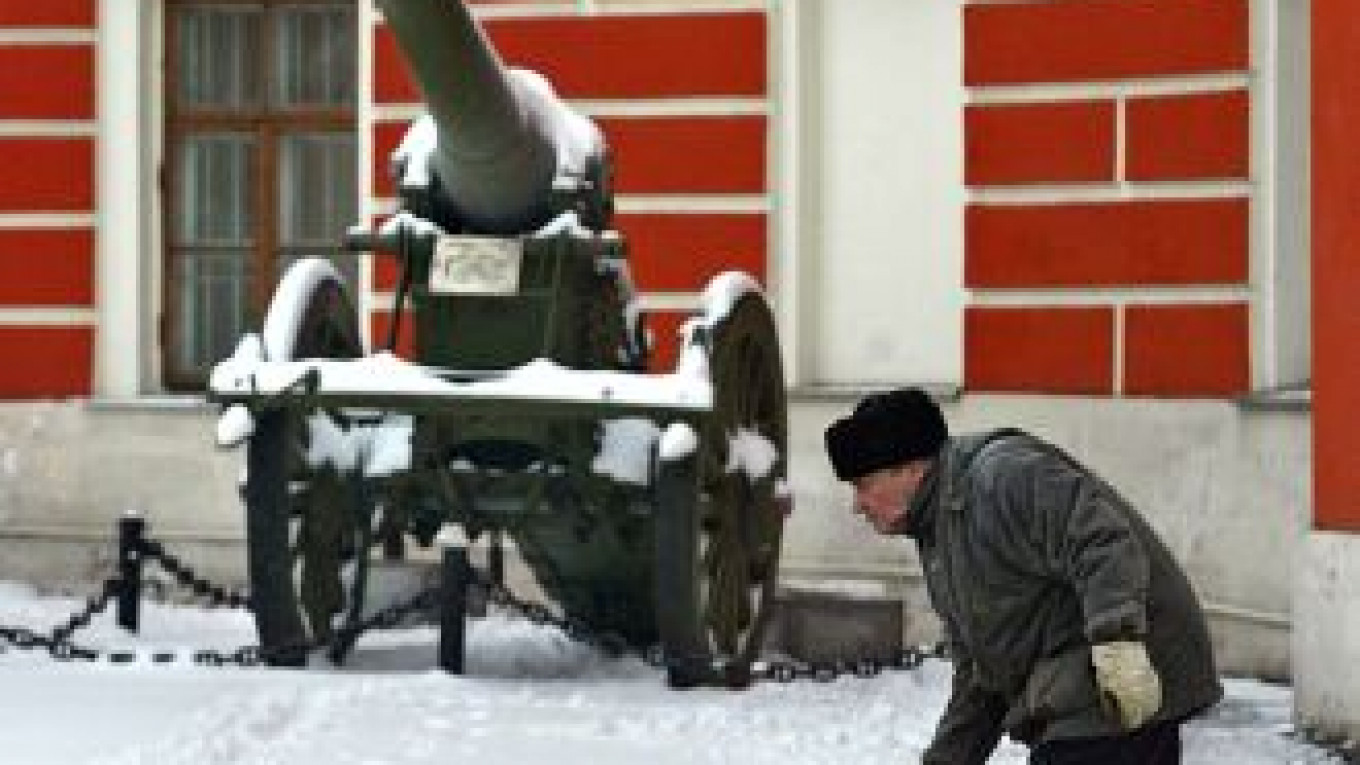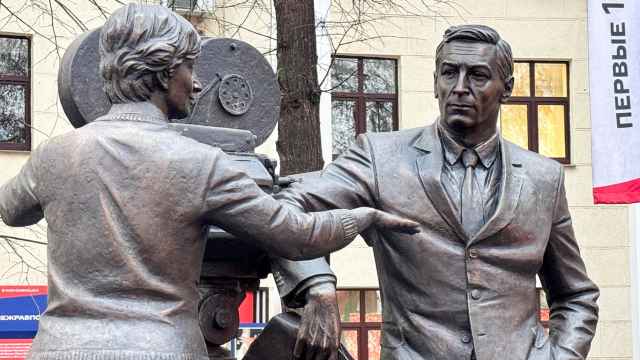Defender of the Fatherland Day on Feb. 23, the holiday that's been called many names including Men's Day, is yin to the yang of International Women's Day. It is almost as contentious as Nov. 7, the confusingly named October Revolution Day, which has been rebranded many times and then abandoned altogether.
This year Feb. 23 falls on a Saturday and we don't get a traditional extra day off. But rest assured, the country will still celebrate it in style: inebriated motherland "defenders" struggling to stay upright and streets littered with broken bottle glass the next morning.
Of course, there are also more cultured, and sober, ways to celebrate it.
When I was young this holiday was called Red Army Day. Wikipedia helpfully points out that it commemorates the first draft into the Red Army during the Civil War back in February 1918.
To trace back the origins of the Defender's Day, I went to what used to be the Museum of the Revolution and now goes by an unwieldy name of the Museum of the Contemporary History of Russia (21 Ulitsa Tverskaya, +7-495-699-6724). It's located in an imposing red plastered building on Tverskaya that used to house the gentleman's English Club before the October Revolution.
After wandering around, admiring the 18th-century interiors and spending some time in front of a screen where President Vladimir Putin was making an apparently very important speech on repeat, I got to the room devoted to 1918.
The museum attendant, although appearing as if she spent most of her long life in this museum, had no idea where to find the stand devoted to the beginnings of the Red Army. Moving from one glass box to another, I finally came across it: foundations of the Red Army. The exhibit had lots of memorabilia and one authentic tachanka, a horse-drawn cart with a heavy machine gun. Unfortunately, official documents dated Feb. 23, 1918, were nowhere to be seen.
To continue my quest I went to the Central Armed Forces Museum (2 Ulitsa Sovetskoy Armii, +7-495-681-4877). The museum is very up to date and already has a portrait of Defense Minister Sergei Shoigu who was appointed to this post in November. There's also a stand devoted to the conflict with "aggressors of [Georgian President Mikheil] Saakashvili" in 2008 and several devoted to the two Chechen wars. For example, there is an installation depicting a Russian soldier smoking a cigarette in Argun Gorge in Chechnya where the famous battle with a regiment from Pskov took place in 2002.
While browsing the exhibit, it is hard to shake the feeling that you time traveled to the U.S.S.R. The top of the stairs is overlooked by an enormous head of Vladimir Lenin, and the representation of all the conflicts is very one-sided, no reasons or explanations given for Russian troops taking part in them.
Sadly, all the exhibition halls devoted to pre-World War II history of the Russian armed forces are currently closed for restoration, but hopefully will reopen later in the year and will feature collections starting from the times before Peter the First.
To clear your head of all the propaganda, you can compare technical characteristics of several generations of Kalashnikovs or take a walk in the backyard full of tanks, helicopters, fighter planes and even intercontinental ballistic missiles. I was relieved to see the sign "mock-up" next to several artfully arranged bombs with Sarin and VX gases, substances outlawed by the Chemical Weapons Convention.
If you are still in battle mode, Sokolniki Park is the place to go. On the afternoon of Feb. 23 it will host a contest of "battle sledges" — sledges fashioned in the shape of tanks, fighter planes and even submarines. Winners will get special prizes.
Alternatively you can go to Lambada, an upscale flea market in the shopping gallery of Hotel Moskva (2 Ulitsa Okhotny Ryad) in the very heart of the city and buy some gifts for both Men's and Women's days. The organizers promise to sell vintage and new designer clothing, antiques and great food.
In the evening there are two back to back concerts at the China Town Cafe (25/12 Lubyansky Proezd, +7-495-623-6163), both worth checking out. The first one is the elf-like Tinavie with her jazzy pop fare and the second is Red Samara Automobile Club, which in reality is a solo project of Felix Bondarev, currently number two in a pop-rock band Sansara from Yekaterinburg. Felix plays electro-pop with angry, biting lyrics (of the parental advisory kind).
Contact the author at [email protected]
Related articles:
A Message from The Moscow Times:
Dear readers,
We are facing unprecedented challenges. Russia's Prosecutor General's Office has designated The Moscow Times as an "undesirable" organization, criminalizing our work and putting our staff at risk of prosecution. This follows our earlier unjust labeling as a "foreign agent."
These actions are direct attempts to silence independent journalism in Russia. The authorities claim our work "discredits the decisions of the Russian leadership." We see things differently: we strive to provide accurate, unbiased reporting on Russia.
We, the journalists of The Moscow Times, refuse to be silenced. But to continue our work, we need your help.
Your support, no matter how small, makes a world of difference. If you can, please support us monthly starting from just $2. It's quick to set up, and every contribution makes a significant impact.
By supporting The Moscow Times, you're defending open, independent journalism in the face of repression. Thank you for standing with us.
Remind me later.






